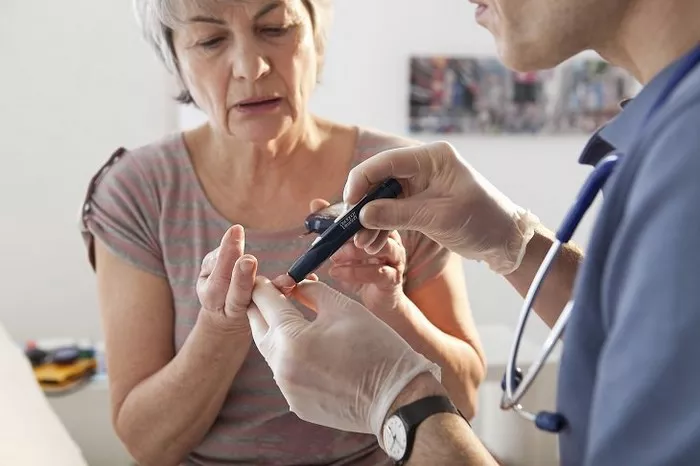Hypoglycemia, commonly known as low blood sugar, is a condition that can have serious and immediate health consequences, particularly for individuals managing diabetes. Recognizing and understanding the critical thresholds at which blood sugar levels become dangerously low is crucial for both patients and healthcare providers. This comprehensive guide explores the definition of hypoglycemia, the physiological impact of low blood sugar, the symptoms and risk factors, and strategies for effective prevention and management.
Defining Hypoglycemia: What Constitutes Low Blood Sugar?
Hypoglycemia occurs when blood glucose levels drop below normal. For most people, blood sugar levels under 70 milligrams per deciliter (mg/dL) are considered hypoglycemic. However, the exact threshold can vary depending on individual factors and circumstances, such as the duration of diabetes, age, and overall health.
Categories of Hypoglycemia
Hypoglycemia can be categorized into three levels based on severity:
Mild Hypoglycemia (Level 1): Blood glucose levels fall between 54 and 70 mg/dL. Symptoms might be manageable without external help, and individuals can often treat themselves by consuming glucose-rich foods or drinks.
Moderate Hypoglycemia (Level 2): Blood glucose levels drop below 54 mg/dL. This level is more serious and typically requires prompt intervention. Symptoms are more pronounced, and cognitive function can be impaired.
Severe Hypoglycemia (Level 3): Blood glucose levels are extremely low, often below 40 mg/dL. This level can lead to severe symptoms, including loss of consciousness, seizures, or even coma. Immediate medical attention is required.
Physiological Impact of Hypoglycemia
Blood glucose is a primary energy source for the body, particularly for the brain. When blood sugar levels drop too low, the body’s ability to function is compromised. The brain, which relies heavily on glucose, begins to exhibit signs of energy deficit first, leading to cognitive dysfunction and neurological symptoms.
Mechanisms of Hypoglycemia
The body’s glucose levels are regulated by a balance between insulin and glucagon. Insulin, produced by the pancreas, lowers blood glucose by promoting its uptake into cells. Glucagon, also produced by the pancreas, raises blood glucose by stimulating the release of glucose stored in the liver. Hypoglycemia can occur when this balance is disrupted, often due to excessive insulin or inadequate glucagon.
Symptoms of Hypoglycemia
Symptoms of hypoglycemia can vary widely and may develop rapidly. Early signs include:
- Shakiness or tremors
- Sweating
- Palpitations
- Hunger
- Irritability or mood changes
As hypoglycemia progresses, more severe symptoms can manifest:
- Confusion
- Dizziness or lightheadedness
- Weakness or fatigue
- Blurred vision
- Seizures
- Loss of consciousness
Risk Factors for Hypoglycemia
Understanding the risk factors for hypoglycemia is essential for prevention and management. Several factors can increase the likelihood of experiencing low blood sugar:
Medication-Induced Hypoglycemia
Certain medications, particularly insulin and sulfonylureas, are common culprits of hypoglycemia in individuals with diabetes. Incorrect dosages, timing errors, or interactions with other medications can precipitate low blood sugar episodes.
Dietary Factors
Irregular eating patterns, missed meals, or insufficient carbohydrate intake can lead to hypoglycemia. Consuming alcohol, especially on an empty stomach, can also trigger low blood sugar.
Physical Activity
Exercise increases glucose uptake by muscles, which can lower blood sugar levels. While regular physical activity is beneficial for managing diabetes, it’s essential to monitor blood sugar levels before, during, and after exercise to prevent hypoglycemia.
Medical Conditions
Certain medical conditions, such as kidney disease, liver disease, and adrenal insufficiency, can affect glucose metabolism and increase the risk of hypoglycemia. Additionally, hormonal imbalances and certain tumors (e.g., insulinomas) can cause low blood sugar.
Individual Factors
Age, duration of diabetes, and the presence of hypoglycemia unawareness (a condition where individuals do not recognize the symptoms of low blood sugar) can influence the risk of hypoglycemia. Children, older adults, and those with long-standing diabetes are particularly vulnerable.
Diagnosing Hypoglycemia
Accurate diagnosis of hypoglycemia involves confirming low blood glucose levels and correlating them with symptoms. The Whipple’s triad is a classic diagnostic criterion used by healthcare providers:
- Symptoms Consistent with Hypoglycemia: Documented physical or cognitive symptoms that align with low blood sugar.
- Low Blood Glucose Measurement: Blood sugar levels measured during symptomatic periods fall below the normal range.
- Relief of Symptoms with Glucose Intake: Symptoms improve upon the administration of glucose.
Continuous glucose monitoring (CGM) systems have become invaluable tools in diagnosing and managing hypoglycemia. These devices provide real-time data on blood sugar trends, helping to identify patterns and predict potential hypoglycemic episodes.
Preventing Hypoglycemia
Prevention of hypoglycemia involves a combination of lifestyle adjustments, medication management, and regular monitoring. Here are key strategies for preventing dangerous drops in blood sugar:
Regular Monitoring
Frequent blood sugar testing is crucial, especially for individuals on insulin or sulfonylureas. Monitoring before meals, before and after exercise, and before bedtime can help detect and prevent hypoglycemia.
Medication Management
Working closely with healthcare providers to adjust medication dosages based on lifestyle changes, meal patterns, and physical activity is essential. This includes understanding how different medications affect blood sugar and recognizing signs of overmedication.
Dietary Considerations
Adhering to a balanced diet with regular meal schedules helps maintain stable blood sugar levels. Including complex carbohydrates, proteins, and healthy fats in meals can prevent rapid glucose fluctuations. Carrying fast-acting glucose sources, such as glucose tablets or gels, is recommended for emergency situations.
Physical Activity
Balancing exercise with appropriate carbohydrate intake and adjusting medication as needed can prevent hypoglycemia during physical activity. Understanding how different types of exercise affect blood sugar levels is crucial for safe participation.
Education and Awareness
Educating patients, families, and caregivers about the signs and symptoms of hypoglycemia, as well as proper treatment methods, is vital. Developing individualized hypoglycemia action plans ensures that everyone knows how to respond in emergencies.
Managing Hypoglycemia
Effective management of hypoglycemia involves prompt recognition and treatment to restore normal blood glucose levels. The following steps outline how to manage an acute hypoglycemic episode:
Immediate Treatment
- Consume Fast-Acting Carbohydrates: At the first sign of hypoglycemia, consume 15-20 grams of fast-acting carbohydrates, such as glucose tablets, fruit juice, or regular soda.
- Recheck Blood Sugar Levels: After 15 minutes, recheck blood sugar levels. If they remain low, repeat the process until levels stabilize.
- Follow-Up with a Balanced Snack: Once blood sugar levels return to normal, consume a balanced snack or meal containing complex carbohydrates and protein to maintain stability.
Severe Hypoglycemia
In cases of severe hypoglycemia where the individual is unable to consume carbohydrates orally or loses consciousness, the following steps should be taken:
- Administer Glucagon: A glucagon injection or nasal spray can be administered by a trained individual. Glucagon stimulates the release of glucose stored in the liver.
- Call Emergency Services: If the person does not respond to glucagon or if glucagon is not available, call emergency services immediately.
- Monitor and Support: While waiting for medical help, ensure the person is in a safe position, such as lying on their side, to prevent choking if vomiting occurs.
Long-Term Management and Prevention
For individuals with diabetes, long-term management and prevention of hypoglycemia involve regular follow-up with healthcare providers, continuous education, and adjustments to treatment plans based on changing needs and circumstances.
Personalizing Treatment Plans
Individualized treatment plans that consider personal risk factors, lifestyle, and preferences are essential. This includes:
- Tailoring medication regimens to minimize the risk of hypoglycemia
- Incorporating regular blood sugar monitoring into daily routines
- Adjusting meal plans and physical activity schedules
Utilizing Technology
Advancements in diabetes technology, such as continuous glucose monitors (CGMs) and insulin pumps, provide real-time data and automated insulin delivery adjustments. These technologies can significantly reduce the risk of hypoglycemia by predicting trends and preventing extreme blood sugar fluctuations.
Psychological Support
Managing diabetes and the associated risk of hypoglycemia can be stressful. Psychological support and counseling can help individuals cope with the anxiety and fear related to hypoglycemic episodes, promoting overall well-being and adherence to management plans.
Research and Innovation
Ongoing research into new treatments and technologies continues to improve the management of hypoglycemia. Novel insulin formulations, non-invasive glucose monitoring devices, and advances in artificial pancreas systems hold promise for reducing the burden of hypoglycemia in diabetes care.
See also: Why Do I Keep Getting Hypoglycemia?
Conclusion
Hypoglycemia is a significant and potentially dangerous condition that requires vigilant management and proactive prevention. By understanding the critical thresholds of blood sugar levels, recognizing symptoms, and implementing effective strategies, individuals with diabetes can reduce their risk of hypoglycemia and maintain better overall health. Collaboration between patients, healthcare providers, and caregivers is essential in creating personalized care plans that address individual needs and promote safe, effective diabetes management.
Related topics:
What’s the Relationship Between Stress and Hypoglycemia



























